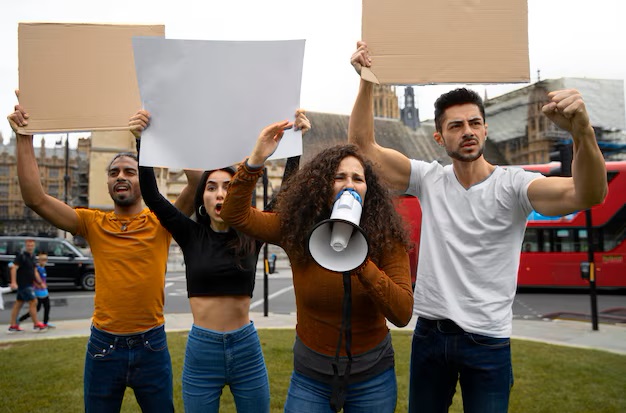In an era where personal stories intersect with broader societal challenges, one individual’s account stands as a testament to the power of narrative in shaping public discourse. This exploration delves into the profound implications that arise when a voice emerges from the shadows to confront experiences that resonate with many. Through the lens of a personal journey, the discussion illuminates the intricate dynamics between individual testimony and collective understanding.
As a pivotal moment of revelation, the act of sharing one’s truth becomes a catalyst for reflection and dialogue. It underscores the significance of memory and the multifaceted nature of human experiences, revealing hidden struggles that demand attention. This narrative not only serves as a form of catharsis for the storyteller but also acts as an invitation for others to engage, fostering a community of empathy and awareness.
Ultimately, the fusion of personal history with societal relevance highlights the enduring effects of shared experiences. By examining the ripple effects of such accounts, we can gain valuable perspectives on the challenges faced by many. Through this examination, we unearth the essential role these narratives play in advocating for change and promoting understanding within the fabric of our society.
The Significance of Christine Blasey Ford’s Story
The narrative of this courageous individual has become a pivotal moment in societal discourse regarding personal experiences of trauma and accountability. Her testimony served not only as a personal declaration but also as a catalyst for broader conversations surrounding the treatment of survivors and the implications of power dynamics in various contexts. The tale resonates deeply within the complexities of justice, gender relations, and the advocacy for truth.
Impact on Public Awareness
This personal account has undeniably influenced public awareness and understanding of the challenges faced by those who come forward with allegations. It elicited strong reactions and initiated discussions that transcend individual incidents, prompting a reevaluation of cultural narratives surrounding consent and victimhood.
Influence on Policy
The revelations have spurred advocacy for legislative changes aimed at better protecting individuals facing similar circumstances. It has prompted institutions to reconsider their policies and implement more robust mechanisms for handling allegations, fostering safer environments for dialogue and support.
| Aspect | Significance |
|---|---|
| Public Discourse | Encouraged open discussions about trauma and justice |
| Cultural Shift | Challenged traditional narratives about victimhood |
| Legislative Change | Inspired reform for survivor protection and institutional accountability |
Impact of Trauma on Survivor Narratives
Trauma profoundly influences the way survivors recount their experiences, shaping both the content and the form of their stories. These narratives often serve as a means of processing pain and reconstructing identity, allowing individuals to navigate the complexities of their emotions while seeking validation and understanding from others. The intricacies of memory, the weight of stigma, and the quest for empowerment all play critical roles in how these accounts are shared and received.
Memory Reconstruction
The process of recalling traumatic events can be uniquely challenging. Survivors may experience fragmented memories or altered perceptions, which complicate their ability to communicate their experiences coherently. This disjointedness can manifest in their narratives, reflecting the tumultuous nature of trauma. Often, individuals must grapple with feelings of shame or fear of disbelief, which can hinder their willingness to share their stories openly. Nevertheless, these accounts can serve as powerful testimonies that reveal the resilience of the human spirit.
Empowerment Through Narration
Sharing personal experiences can be an act of reclaiming agency for survivors. By articulating their narratives, individuals not only affirm their reality but also challenge societal norms surrounding victimhood and accountability. This empowerment can foster a sense of community among those with similar experiences, promoting healing and solidarity. In this way, trauma narratives transcend individual stories, encouraging collective awareness and prompting societal change.
Public Reaction to Ford’s Testimony
The response from society following the public account delivered by the prominent figure was multifaceted and deeply emotional. Many individuals expressed a sense of validation and empowerment, while others voiced skepticism and criticism. This division highlights the complexities surrounding serious allegations and the intricate dynamics between personal narratives and public perception.
Supporters rallied around her, viewing the testimony as a critical moment for victims of abuse. They emphasized the necessity of believing women and the importance of sharing their stories. Social media platforms became a space for solidarity, where hashtags and movements gained momentum, reflecting widespread empathy and calls for justice.
Conversely, opponents questioned the reliability and motivations behind the statements made during the hearing. Some commentators focused on procedural aspects, debating the fairness of the process and the implications for the accused. This skepticism seemed to stem from deeper societal issues regarding credibility and the balance of power between genders.
Ultimately, the testimony catalyzed discussions that transcended the individual case, sparking national dialogues about accountability, gender dynamics, and the treatment of survivors within the judicial system. The public’s reaction demonstrated the power of personal stories in shaping societal attitudes and influenced conversations on a broader scale.
Legal Perspectives on Sexual Assault Cases
Understanding the legal framework surrounding cases of sexual violence is crucial for both survivors and the judicial system. These cases often navigate complex emotional, social, and legal landscapes, highlighting the need for informed approaches to justice. Legal professionals and advocates must consider various factors when addressing such sensitive matters.
The challenges of prosecution can be significant. Many survivors face hurdles in reporting incidents due to fear of victimization, societal stigma, or disbelief from authorities. Additionally, the burden of proof often rests heavily on the accuser, requiring them to provide substantial evidence to support their claims. This reality can discourage individuals from pursuing legal action, potentially allowing offenders to escape accountability.
Victim advocacy plays a vital role in navigating the justice system. Organizations and professionals dedicated to supporting survivors help them understand their rights and the processes ahead. They aim to create safer environments for individuals to come forward, thereby increasing the likelihood of cases being pursued and addressed effectively. Moreover, advocacy efforts can lead to policy changes that enhance protections and resources for all involved in these troubling incidents.
Furthermore, evidence collection and preservation are paramount in these cases. The methods used to gather and analyze evidence are critical determinants of case outcomes. Legal practitioners must remain vigilant to ensure that forensic protocols are adhered to, thus preserving the integrity of the investigation. The application of trauma-informed approaches can significantly impact the willingness of survivors to participate in the process.
Ultimately, the interplay between law, societal norms, and individual experiences will continue to shape the discourse on sexual violence. Legal perspectives must evolve, fostering a system that prioritizes justice, supports survivors, and holds offenders accountable. By doing so, society can work towards reducing the incidence of these violations and transforming the narratives surrounding them.
Memories and the Journey to Healing
Experiences from the past can shape a person’s life in profound ways, often becoming pivotal moments that define their path forward. The process of remembering these events can be both challenging and transformative, leading individuals to confront their emotions and ultimately find a sense of peace. This journey not only illuminates the impact of these memories but also serves as a critical step toward personal recovery and empowerment.
The act of recalling significant life events is a complex interplay of emotion and cognition. It involves grappling with feelings of pain, confusion, and, at times, empowerment. As individuals venture into the depths of their recollections, they may encounter the necessity of recognizing their inner strength, enabling them to rebuild their narratives and reclaim ownership of their stories.
Healing often requires support from others. Sharing one’s experiences with trusted companions or professionals can foster an environment conducive to understanding and validation. This connection can serve as a catalyst for growth, reinforcing the idea that no one needs to navigate their path alone. The shared journey, marked by solidarity and understanding, can facilitate a deeper healing process.
Furthermore, embracing moments of reflection allows for the integration of past experiences into one’s current identity. This synthesis can empower individuals to articulate their truths more clearly, promoting courage and resilience. By honoring their memories, individuals can pave the way for a brighter, more hopeful future, characterized by strength rather than sorrow.
Lessons Learned from Ford’s Experience
The account shared by a prominent individual serves as a powerful reminder of the complexities surrounding personal narratives in public discourse. It illustrates how personal experiences can shape societal views on critical issues, urging individuals and communities to confront uncomfortable truths. There are several key takeaways from this journey that can educate and empower others in similar situations, shedding light on resilience, advocacy, and the importance of speaking one’s truth.
Emotional Resilience
One striking lesson from this experience is the importance of emotional strength in the face of adversity. Navigating public scrutiny and grappling with past trauma requires a profound level of inner fortitude. Recognizing and acknowledging personal struggles can foster resilience, encouraging others to seek support and pursue healing in their own lives. This resilience not only aids in personal recovery but also inspires others who may be confronting similar challenges.
The Power of Speaking Out
Another critical realization is the transformative effect that sharing personal stories can have on societal attitudes and perceptions. By courageously voicing her truths, the individual sparked necessary dialogues about accountability, justice, and the importance of listening to those affected by trauma. This highlights the crucial role that advocacy plays in bringing about change, urging everyone to consider their own potential to influence and advocate for others in their communities.
Q&A: Column christine blasey fords memoir making witness
What inspired Christine Blasey Ford to write her memoir?
Christine Blasey Ford’s memoir was inspired by her desire to share her personal story and the experiences she faced during the Kavanaugh confirmation hearings. After her testimony, she received overwhelming support and encountered many individuals who had their own experiences with trauma and abuse. This led her to realize the importance of telling her story not just for herself, but for others who may be struggling with similar issues. In her memoir, she aims to highlight the strength in vulnerability and the collective power of speaking out against injustice.
How does Christine Blasey Ford address the impact of her testimony in society?
In her memoir, Christine Blasey Ford discusses the profound impact her testimony had on society by sparking national conversations about sexual assault, consent, and the treatment of survivors in legal and political systems. She reflects on how her willingness to stand up and share her experience encouraged many others to come forward with their own stories. Ford highlights the importance of these conversations in reshaping societal attitudes towards sexual violence and fostering an environment where survivors feel empowered to speak out, ultimately aiming for a systemic change that can prevent such crimes in the future.
What key insights does Ford provide about the process of healing from trauma?
Christine Blasey Ford offers several key insights about healing from trauma throughout her memoir. She emphasizes that healing is not a linear process, but rather a personal journey that varies for each individual. Ford discusses the importance of acknowledging one’s feelings, seeking therapy, and finding support in community and trusted relationships. She also highlights the value of self-compassion and the necessity of creating safe spaces where survivors can share their experiences without judgment. Through her narrative, she underscores that while healing may take time, it is possible, and that speaking out can be a powerful step towards regaining agency over one’s life.
How does Ford’s memoir reflect on the role of community in supporting survivors?
In her memoir, Christine Blasey Ford reflects on the crucial role of community in supporting survivors of trauma. She shares her experiences of receiving support from friends, family, and organizations dedicated to helping those affected by sexual violence. Ford illustrates how having a strong network of empathetic individuals can provide essential emotional support and validation. She also emphasizes the importance of creating greater awareness within communities about the issues faced by survivors and the need to cultivate an environment that encourages open conversations about consent and respect, which is vital for prevention and healing.
What are some of the challenges Christine Blasey Ford faced while writing her memoir?
While writing her memoir, Christine Blasey Ford encountered various challenges, both emotional and logistical. Revisiting her traumatic experiences required her to confront painful memories, which was an emotionally taxing process. She also dealt with public scrutiny, as her story was highly politicized and drew significant media attention. Ford faced the challenge of navigating her personal narrative amid societal expectations and criticisms. Additionally, she had to balance her commitment to accurately portraying her experiences with the desire to inspire and educate readers. Ultimately, she aimed to make her memoir a space for reflection, healing, and empowerment, despite these hurdles.
What are the key allegations made against Brett Kavanaugh during his confirmation to the Supreme Court?
Brett Kavanaugh has faced multiple allegations, notably from Christine Blasey Ford, who alleged that Kavanaugh sexually assaulted her in 1982. Ford’s allegations gained significant attention during Kavanaugh’s confirmation process in the Senate Judiciary Committee hearing, where she described her experience as a psychology professor and activist. The Senate Judiciary Committee was under intense scrutiny, with media coverage from outlets like the New York Times and Washington Post highlighting the accusations and the subsequent testimonies, including the inconsistencies and the pervasive nature of such claims in the context of decades-old incidents.
How has Christine Blasey Ford’s new memoir contributed to the ongoing discussion about Kavanaugh?
Christine Blasey Ford’s new memoir, titled “One Way Back,” offers a personal retelling of her experience and the events surrounding her allegations against Brett Kavanaugh. In the memoir, Ford describes her life and the impact of going public with her accusations during Kavanaugh’s confirmation to the Supreme Court. The book sheds light on the emotional and psychological toll of the ordeal, as well as the bravery it took to testify before the Senate Judiciary Committee. The memoir also discusses the threats she faced, including death threats, and reflects on how the experience has shaped her and her family, further spotlighting the issues surrounding sexual assault and the judicial process in the U.S.
What key events surrounded the allegations made by Christine Ford against nominee Brett Kavanaugh during his confirmation process in 2024?
The allegations made by Christine Ford against nominee Brett Kavanaugh centered around claims that he sexually assaulted her during their time at Yale. In her congressional testimony, Ford described the alleged attack, stating that she “doesn’t remember” certain details but was unequivocal about the incident’s impact on her life. Ford’s legal team sought to address the accusations through litigation, emphasizing the importance of privacy policy as it pertained to her family’s safety. This situation echoed the past experiences of Anita Hill when she testified about Justice Clarence Thomas. Despite the controversy, Kavanaugh was confirmed as a Supreme Court Justice in 2023, leading to significant discussions on Capitol Hill about the implications of such allegations for future court nominees. As the waves of public opinion surged like a surfer catching the tide, the narrative evolved, with Ford sending a lucid memoir to share her experiences. The headline “One Way Back” captured the essence of the struggle many face when confronting powerful figures, leading some to feel that they would lie if it meant protecting themselves from a system designed to catapult the privileged.
What role does a lawyer play in the making of a witness during high-profile court cases like the one involving Brett Kavanaugh, who was accused of sexually assaulting Christine Ford?
A lawyer plays a critical role in the making of a witness by preparing them to provide testimony that is clear and credible. In cases such as the one involving court nominee Brett Kavanaugh, who was accused of sexually assaulting Christine Ford, the lawyer must ensure that the witness can confidently recount their experiences. This process involves rehearsals where the witness describes life events and emotions related to the incident. It is essential for the lawyer to establish a rapport with the witness, ensuring they feel supported, which is vital for conveying their story unequivocally. Furthermore, the lawyer must navigate the political landscape, as the case involved significant Republican and Democratic scrutiny, especially from senators during the confirmation hearings. As a witness, Ford’s family may also be involved, emphasizing the emotional weight of the testimony. The lawyer must be adept at managing the media and public perception, similar to how one might strategize in a competitive environment, like a surfer trying to catch the wave. In such tense environments, the challenge is to avoid backtracking on statements or losing clarity in communication, much like ensuring a band, such as Metallica, hits all the right notes without running through the wringer of criticism. Ultimately, the lawyer’s job is to ensure that the witness can navigate the court system, articulate their truth, and withstand any pressure that may come from those opposing their testimony, regardless of the political ramifications.
Was there ever concrete evidence presented that court nominee Brett Kavanaugh sexually assaulted Christine Blasey Ford?
Throughout the investigation into the allegations that court nominee Brett Kavanaugh sexually assaulted Christine Blasey Ford, claims were made but no concrete evidence emerged to confirm the allegations. Ford alleged that the incident took place in the 1980s at a D.C. country club, and she identified Kavanaugh as the assailant. However, both Kavanaugh and other alleged witnesses denied the event. The prosecutor assigned to the case reviewed the claims but did not establish further evidence.








